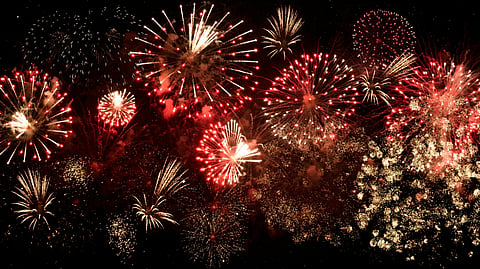

Delhi is facing a serious air pollution crisis, with a recent survey showing that 69% of families are experiencing health problems after the Diwali celebrations. On the night of the festival, the Air Quality Index (AQI) shot up to an alarming 999 in many areas, the highest level recorded, making Delhi one of the most polluted cities in the world.
The survey, conducted by LocalCircles, collected responses from over 21,000 residents in Delhi, Noida, Gurugram, Faridabad, and Ghaziabad. The results reveal a worrying situation for public health.
Of those surveyed, 69% reported that at least one family member had a sore throat or cough. Additionally, 62% felt a burning sensation in their eyes, and 46% experienced runny noses or nasal congestion.
Other health issues are also common.31% of families reported breathing difficulties or asthma, while the same percentage suffered from headaches. 23% percent faced anxiety or trouble concentrating, and 15% had problems sleeping. Despite these concerns, 31% of respondents said that no one in their families was affected by the pollution, showing that experiences vary widely.
When compared to a similar survey conducted on October 19, just after the Graded Response Action Plan (GRAP-1) was introduced, the increase in health problems is clear. The percentage of people suffering from sore throats or coughs jumped from 36% to 69% in just two weeks.
When it comes to dealing with the pollution, residents have different ideas. The percentage of families planning to use air purifiers has increased from 18% to 23% over the past two weeks, reflecting a slight rise in residents’ responses to the air pollution crisis. An equal number, 23%, said they would “just live with it.” Meanwhile, 15% intend to continue their daily activities but wear masks outside, while another 15% want to eat more foods that boost immunity. The same percentage is considering traveling to escape the pollution for some time.
Input from various sources
(Rehash/Dr. Sreelekshmi P/MSM)
